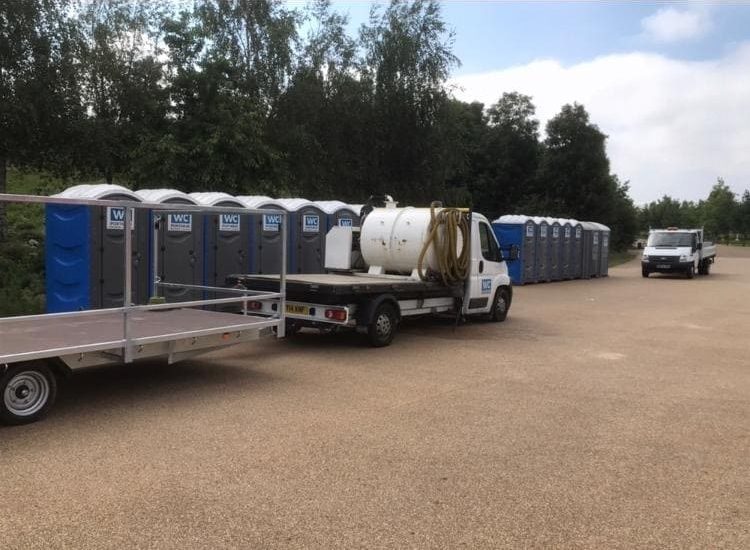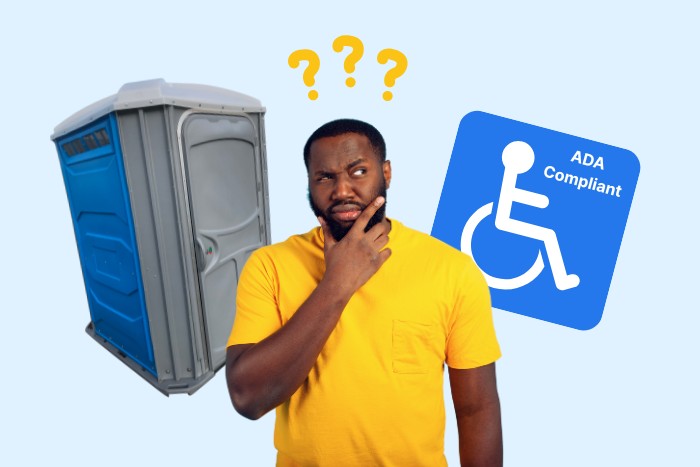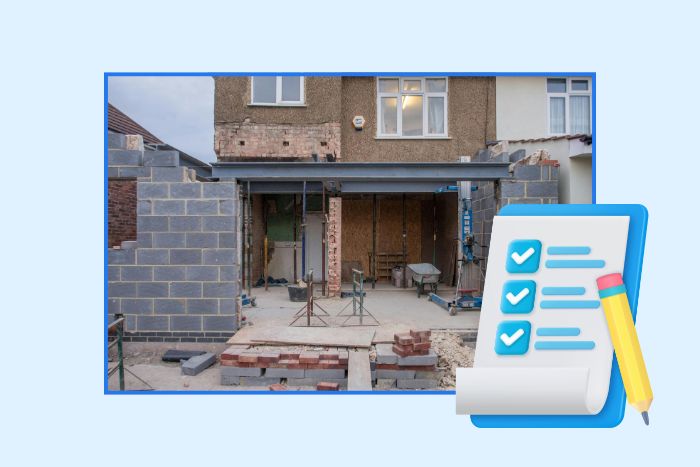If you’re renting portable toilets for an event or a construction site, ensuring they meet local regulations and accessibility standards is essential. Here’s a step-by-step guide to help you navigate this process.
Why Portable Toilets Must Meet Local Regulations
Portable toilets are governed by rules set by councils and regulatory bodies to protect public health and safety. These standards cover everything from placement to cleanliness, accessibility, and maintenance. Non-compliance can lead to penalties, so it’s vital to get this right.
Accessibility Features for Portable Toilets
One key requirement is ensuring access for individuals with disabilities. This means a portion of the toilets must be wheelchair-accessible with:
- Wider doors for easy entry.
- Grab bars for support and stability.
- Ramps and level surfaces for smooth access.
These features are essential to ensure everyone can use the facilities comfortably.
Hygiene Standards for Portable Toilets
Cleanliness is critical for user health and satisfaction. Regulations often require portable toilets to be:
- Regularly cleaned to maintain hygiene.
- Stocked with handwashing essentials like soap, water, or sanitiser.
- Well-ventilated to prevent unpleasant odours.
By meeting these standards, you’ll ensure a positive experience for users and compliance with local rules.
Placement Rules for Portable Toilets
Where you place the toilets matters as much as their design. Local zoning regulations typically dictate:
- Minimum distances from buildings or boundaries.
- Screening requirements to minimise visual impact.
- Placement in accessible, well-lit, and safe locations.
Following these guidelines will help you avoid complaints and ensure your facilities are practical for users.
Choosing the Right Portable Toilet Hire Company
Not all hire companies are equal, so selecting one that prioritises compliance is essential. When vetting companies, ask about:
- Accessibility features, including wheelchair-friendly options.
- Cleaning and maintenance schedules.
- Accreditation or industry certifications that demonstrate reliability.
A reputable company will happily provide this information and ensure their toilets meet local standards.
Confirming Compliance with Local Authorities
Before signing any agreements, it’s a good idea to consult your local council or a regulatory body. They can provide specific guidelines for your area, such as zoning restrictions or additional requirements. Taking this step can prevent unexpected issues and ensure a smooth process.
Benefits of Meeting Portable Toilet Regulations
Compliance isn’t just about avoiding fines—it’s about providing a safe, hygienic, and accessible experience for all users. When your facilities meet the necessary standards, you can focus on your event or project with confidence.
Final Thoughts
By ensuring your portable toilets meet local regulations and accessibility standards, you’ll create a positive experience for users while avoiding potential legal trouble. Choose a reliable hire company, confirm accessibility and hygiene features and consult local authorities to get everything right.
Portable toilets might not be glamorous, but with proper planning, they’ll do their job seamlessly. Whether it’s for a festival, wedding, or worksite, compliant toilets make all the difference.




